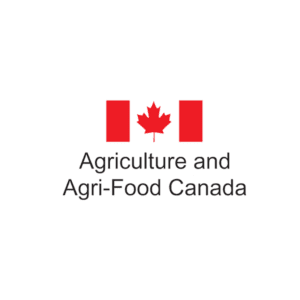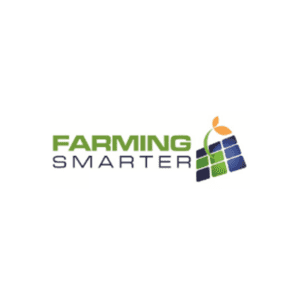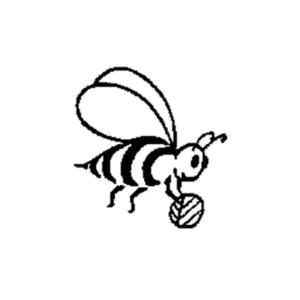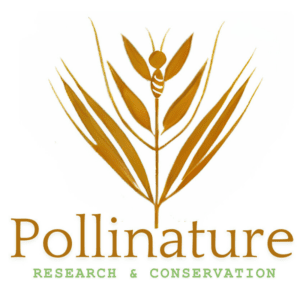For Producers
The Alfalfa Seed Commission’s mandate is to fund and partner on research which will enhance all aspects of the alfalfa seed and leafcutter bee industry in Alberta. concerns raised by our growers, and our research priorities range from integrated pest management, leafcutter bee health, pesticide safety and efficacy trials, to crop disease studies.
Our current projects include:
ASCA partners with Farming Smarter to conduct plot trials including:
Desiccation Product Timing trial which aims to compare various desiccation timings, chemicals, and surfactants. Trials concluded in 2024, results can be viewed behind the members tab.
Alfalfa Weevil Control Product project examines the efficacy of new control products on weevil populations in order to combat concerns over pesticide resistance of this pest.
From 2021 – 2024,
Plant Growth Regulator trials continue to study PGRs that may help prevent lodging and improve harvestability without affecting overall seed yield. Results from the trials examining A-Rest, Moddus, and B-Nine can be found behind the members tab.
Timing, rates, and application type of Moddus continues to be studied. Preliminary results were shared at the Spring 2025 AGM and those slides are posted behind the members tab.
In 2023, Tough 5EC herbicide was tested for crop tolerance, in hopes that we will be able to register another product that can help control kochia (and other weeds). The data package has been submitted to the PMRA for review.
Leafcutting bee producers suffer economic losses from infestations of the parasitoid, Pteromalus venustus. With the recent loss of chemical control options for this pest, this project’s objective is to develop a natural, botanical-based alternative. ASCA is partnering with the other prairie provinces to support research scientist Dr. Gail MacInnis of Pollinature Inc.
Over three years, Dr. MacInnis will conduct lab and field validation trials to assess efficacy, bee safety and adoption by the leafcutting bee industry.
We have been partnering with Dr. Maya Evenden and her lab from U of A, whose project seeks to understand the movement habits of alfalfa weevils in Southern Alberta and explore new practices for trapping and control. The second year of sampling was completed in 2022 and this summer we anticipate further emergence trapping, insect sweeping, and pheromone studies to take place in the Brooks area.
Since 2023, ASCA has been sending samples of leafcutter bees for viral analysis to determine if our populations carry any viral pathogens that are common to other managed bee species (honey bees). These samples allow our industry to establish a baseline for viral prevalence in our populations.
For only some viruses there has been a threshold established and validated that 108-1010 copies or more is associated to symptoms in an individual honey bee (i.e. CBPV, SBV, ABPV, BQCV, DWV, VDV), but those thresholds are unknown for leafcutter bees.
In the coming years, we hope to build out this work to examine whether leafcutter bees display symptoms for these honey bee viruses or if they are benign, thresholds for symptom development, and determine if there are viruses unique to our populations.
Diagnostic tools in support of alfalfa weevil, Hypera postica, management in alfalfa seed production fields
Funding provided in part by RDAR
2023 – 2028
Dr. Mori, in partnership with Dr. Carcamo (AAFC- Lethbridge) and Dr. Dumonceaux (AAFC-Saskatoon) are planning the next phase of research with their project titled: Diagnostic tools in support of alfalfa weevil, Hypera postica, management in alfalfa seed production fields. This work will use molecular diagnostic tools including loop mediated isothermal amplification (LAMP) and recombinase polymerase amplification (RPA), which would allow parasitism rates to be determined on farm. There are plans to build on previous insecticide resistance studies to develop an insecticide resistance test kit for on farm use. Given that alfalfa weevil resistance to synthetic pyrethroids in areas of southern Alberta has significantly reduced the number of control options available, this work will aid farmers’ decision making and assist their management choices.
In addition, there are plans to re-evaluate alfalfa weevil and lygus economic thresholds, taking into consideration the complex variables that may influence tolerance for these pests in fields. We plan to begin a threshold strip field survey this coming season, where we will collect insects by sweeping, shake-bucket method, and leaf damage surveys to assess pest threat, as well as looking at beneficial insect populations, and yield at the end of the season.
Feasibility of a biopesticide as a non-chemical alternative to control alfalfa weevil (Hypera postica)
This project is funded in part by RDAR.
2025-2027
ASCA and AAFC Lethbridge are collaborating to study naturally occurring pathogens of alfalfa weevil in alfalfa fields grown for seed. Two commercially available biopesticides will be examining for their suppression of alfalfa weevil via laboratory and field studies.
Optimizing leafcutter bee incubator management to control the critically damaging parasitoid pest, Pteromalus venustus
Funding provided in part by RDAR
2025-2028
ASCA, in partnership with AAFC Lethbridge to commence a study of the development of the critically damaging parasitoid, P. venustus, and explore alternative management solutions to protect and sustain pollination services.
This project is producer-led as Alfalfa seed growers are actively testing fall incubator temperatures to induce early development of the
parasitoids, starve overwintering adults before they emerge and re-parasitize cocoons, but many factors are unknown and rigorous study is needed. Testing of how different temperatures and durations impact the onset of development and survival of P. venustus when incubated for different lengths of time in the fall/winter, while monitoring impacts to ALBs.
ASCA has completed 4 years of data collection for the Blossom Blight trial with Drs. Syama Chatterton and Mike Harding, where in-field and field edge weather data was collected at five field sites. Field surveys were conducted looking for the presence of Botrytis and Sclerotinia, and flower samples were taken from fields and plated on selective media to check for the presence of these diseases. After multiple hot and dry summers, results show that little to no blossom blight was found in field despite plenty detected in the lab.
View the results from 2021 season here (page 105):
Canadian plant disease survey 2022 volume 102: disease highlights 2021 (tandfonline.com)
Leafcutter Bee Production
Alfalfa Seed producers rely on pollination by the small, solitary leafcutter bee, Megachile rotundata. Alfalfa flowers grow as an elongated cluster of parts, with a keel, wings and standard taking the place of the normal arrangement of petals. The pistil is held deep in the keel and must be exposed or “tripped” for pollination to occur. Leafcutter bees are the preferred managed pollinator for this crop as others such as honeybees, will simply reach in from the side and “steal” nectar without tripping and pollinating the flower.
Careful management of leafcutter bee populations is necessary to maintain high levels of pollination, good bee return and the health of leafcutter bees through storage and incubation.
Below you will find resources. Please login into the members area for access to ASCA’s Alfalfa Seed and Leafcutter bee Production and Marketing Manual for more information.
Members of the Alfalfa Seed Commission (Alberta) who are in need of paraformeldahyde for their leafcutter bees can purchase the chemical at: ClearTech
1-800-387-7503
The Canadian Cocoon Testing Center (CCTC) located in Brooks, Alberta, is the national testing centre for alfalfa leafcutter bee cocoons. The CCTC is operated under governance of alfalfa leafcutting bee organizations in Alberta, Saskatchewan, and Manitoba. Services provided include x-ray imaging to identify live bee counts, disease prevalence (Chalkbrood and A. larvis), machine and pest damage, and parasitism levels. Sex ratio studies are also available. For more information, click here.
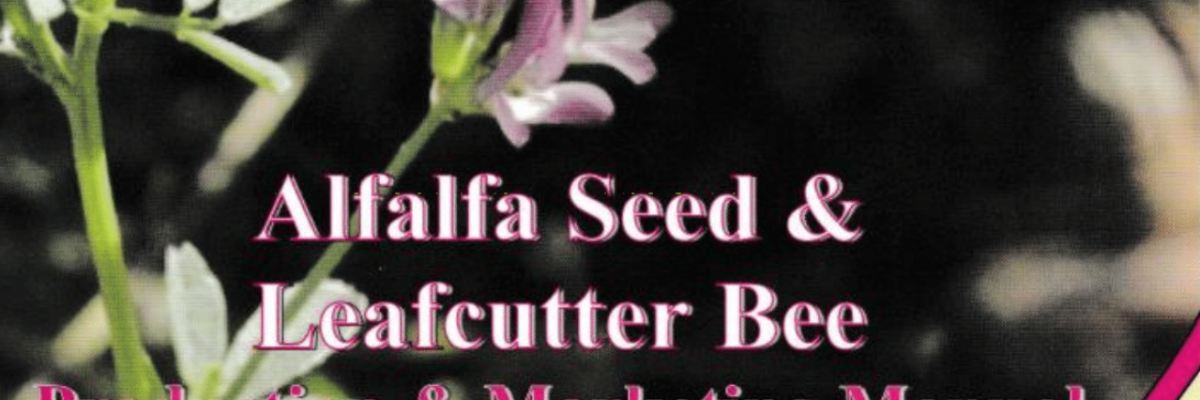
Please login into the members area for access to ASCA’s Alfalfa Seed and Leafcutter bee Production and Marketing Manual for more information.
Seed Production
Much of the irrigated alfalfa seed produced in Canada comes from southern Alberta, with much of it grown within the Eastern Irrigation District (EID). There is also seed production in the Bow River Irrigation District, near the towns of Enchant, Bow Island, and Lomond, and in the Peace Region of Northern Alberta.
2024
As of May 2024, Assail 70 WP Insecticide has been registered for control of alfalfa weevil and alfalfa plant bug, and suppression of tarnished plant bug (lygus) in alfalfa seed crops.
2023
As of December 2023, Authority Supreme Herbicide (sulfentrazone/pyroxasulfone) and Authority® 480 Herbicide (sulfentrazone) are now registered for use on alfalfa seed crops.
Pre-2023
Beleaf 50SG has been approved for control of aphids and suppression of tarnished plant bugs .
Express plus glyphosate was approved as a pre-seed burn down for labeled weeds on alfalfa seed.
AFA published the 2023 edition of their Alfalfa Variety Ratings – Winter Survival, Fall Dormancy & Pest Resistance Ratings for Alfalfa Varieties which you can access at: Welcome to the National Alfalfa & Forage Alliance and you can explore their searchable variety database at: alfalfa.org/varietyratings.php
National Alfalfa & Forage Alliance’s 2023 Alfalfa Variety Ratings
Alberta’s Crop Protection Guide
Seeds Canada
Seeds Canada (seeds-canada.ca)
Canadian Seed Growers Association
Seed Growers – What is Canadian Certified Seed?
CSGA Certified Seed Locator
Pedigreed Seed | Canadian Seed Growers Association Seed Locator
Current and historic weather and climate information
Weather and climate resources – Overview | Alberta.ca
Alberta Irrigation Management Model (AIMM)
Alberta Irrigation Management Model
Government of Alberta’s Alfalfa Seed Marketing Guide
Alfalfa seed marketing in Canada | Alberta.ca\
Alfalfa Leaf Cutting Bee Producer Guide to the National Bee Farm-level Biosecurity Standard
For insect pest risk maps, field guides and more
Prairie Pest Monitoring Network – Get Weekly Prairie Insect Information


